By Dr. Atul Dokrimare | Dokrimare Multispeciality Hospital
Kidney stones are one of the most common and painful urological disorders affecting millions of people globally. In India, the incidence of kidney stones has significantly increased due to lifestyle changes, poor hydration habits, and dietary patterns. At Dokrimare Multispeciality Hospital, we offer a patient-centric approach to managing and preventing kidney stones using advanced diagnostic and treatment protocols.
In this detailed guide, Dr. Atul Dokrimare explains everything you need to know about kidney stones — from understanding what they are, why they occur, and how they are treated, to what you can do to prevent them from returning.

What Are Kidney Stones?
Kidney stones, also known as renal calculi, are hard mineral and salt deposits that form in the kidneys. They vary in size and may affect any part of the urinary tract — from the kidneys to the bladder. A kidney stone may remain in the kidney or travel down the urinary tract. In either case, if it blocks the flow of urine, it can cause severe pain and complications.
Types of Kidney Stones
There are four main types of kidney stones:
- Calcium Oxalate Stones – Most common type, formed due to excess oxalate in the urine.
- Uric Acid Stones – Common in people with high protein diets or gout.
- Struvite Stones – Often form in response to infections.
- Cystine Stones – Rare and hereditary, caused by a genetic disorder.
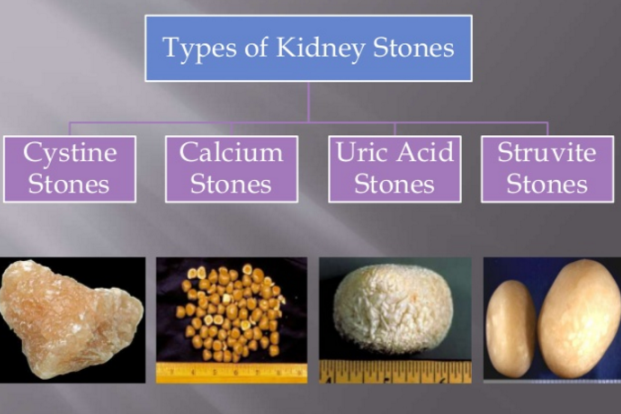
Causes and Risk Factors
Several factors contribute to the formation of kidney stones:
1. Dehydration
Not drinking enough water causes urine to become concentrated, allowing minerals to crystallize and stick together.
2. Diet
- High intake of salt, sugar, and animal protein
- Excessive consumption of oxalate-rich foods (e.g., spinach, beets, nuts)
- Low calcium diets (ironically, low calcium can cause oxalate buildup)
3. Medical Conditions
- Hyperparathyroidism
- Gout
- Urinary tract infections
- Digestive diseases like Crohn’s or gastric bypass surgery
4. Genetics
Family history significantly increases the risk of developing kidney stones.
5. Lifestyle
- Sedentary habits
- Obesity
- Recurrent dehydration (especially among outdoor workers)
Symptoms of Kidney Stones
Kidney stones may go unnoticed until they move within the kidney or pass into the ureter. Common symptoms include:
- Severe pain in the back, side, or lower abdomen
- Painful urination (dysuria)
- Frequent urge to urinate
- Cloudy or foul-smelling urine
- Blood in urine (hematuria)
- Nausea and vomiting
- Fever and chills (indicating infection)
Pain typically begins suddenly and comes in waves, varying in intensity depending on the stone’s size and location.
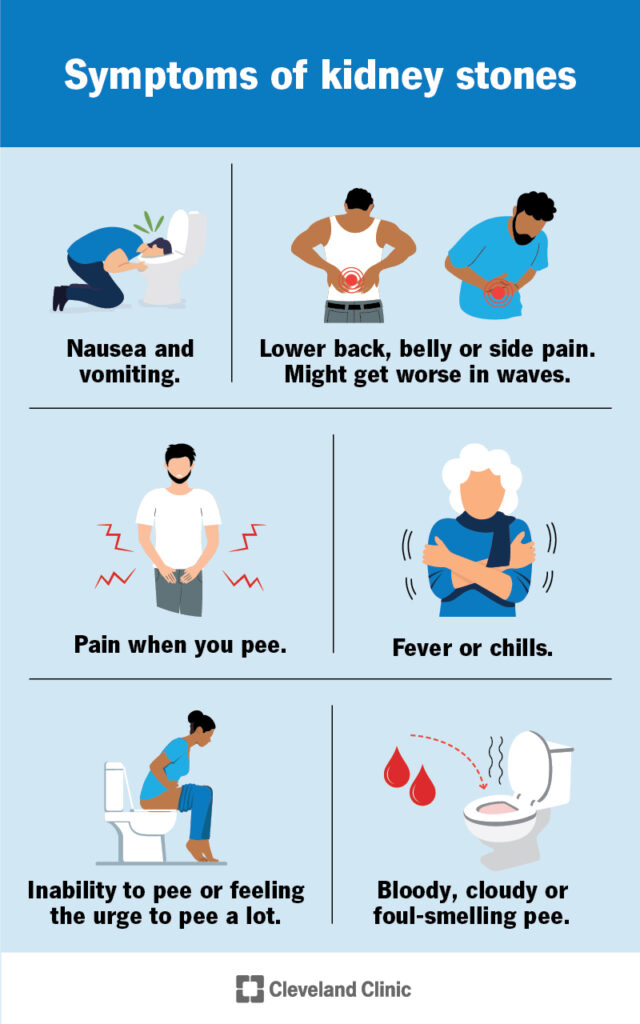
How Are Kidney Stones Diagnosed?
Early and accurate diagnosis is key to successful treatment. At Dokrimare Multispeciality Hospital, we use the following diagnostic techniques:
1. Urinalysis
Checks for crystals, blood, white blood cells, and signs of infection.
2. Blood Tests
Assess calcium, phosphorus, uric acid, and kidney function levels.
3. Imaging Tests
- Ultrasound: Non-invasive and commonly used.
- CT Scan (Non-contrast): Highly accurate for identifying stone size, shape, and location.
- X-rays (KUB): Sometimes used to track stones visible on X-rays.
4. Stone Analysis
If a stone is passed naturally or removed surgically, it is tested to determine its composition. This helps in planning future prevention.
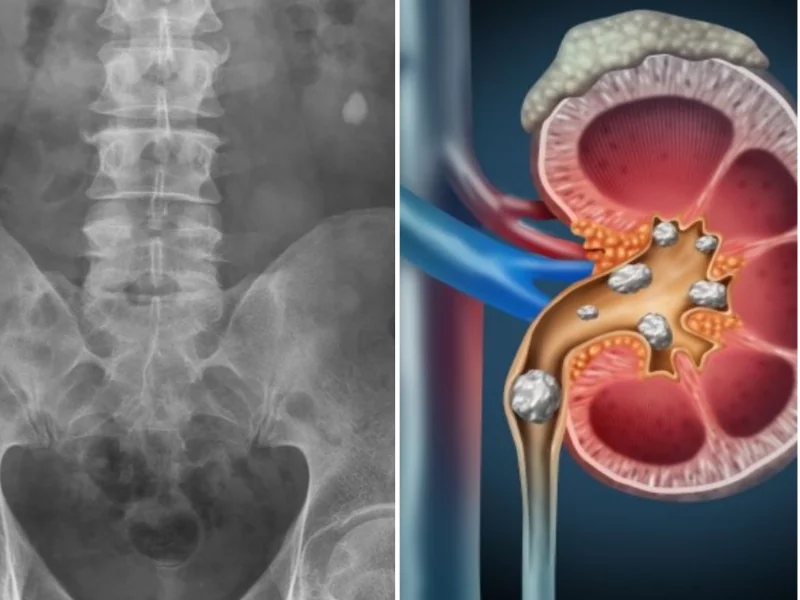
Treatment Options for Kidney Stones
Treatment depends on the stone’s size, type, location, and whether it is causing pain or obstruction.
1. Conservative (Non-Surgical) Treatment
a. Hydration and Pain Management
- Drinking 2.5–3 liters of water daily to help flush out small stones
- Painkillers (NSAIDs) to manage discomfort
- Alpha-blockers (like tamsulosin) may help relax muscles in the ureter to ease stone passage
b. Medical Expulsive Therapy
Certain medications can help dissolve uric acid stones or facilitate stone movement through the urinary tract.
Most stones <5 mm pass on their own within 1–2 weeks.
2. Surgical Treatment Options
a. Extracorporeal Shock Wave Lithotripsy (ESWL)
- Non-invasive technique that uses sound waves to break stones into smaller fragments
- Suitable for stones <2 cm in the kidney or upper ureter
- Performed as a day-care procedure
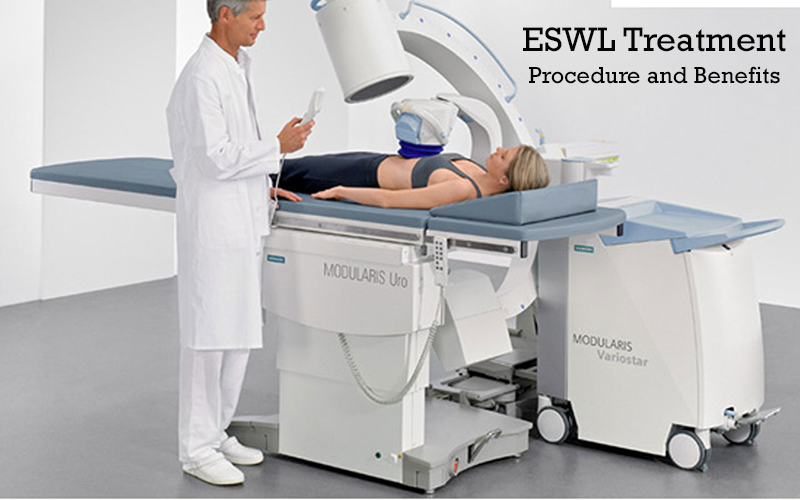
b. Ureteroscopy (URS)
- A thin tube is passed through the urethra and bladder to access the ureter
- Used to break and remove stones in the lower or mid-ureter
- Involves laser lithotripsy and may require stenting
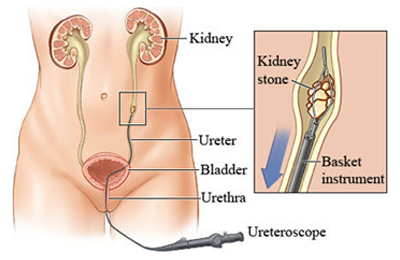
c. Percutaneous Nephrolithotomy (PCNL)
- Minimally invasive procedure for large or multiple stones
- A small incision is made in the back to directly remove the stone
- Requires general anesthesia and short hospital stay
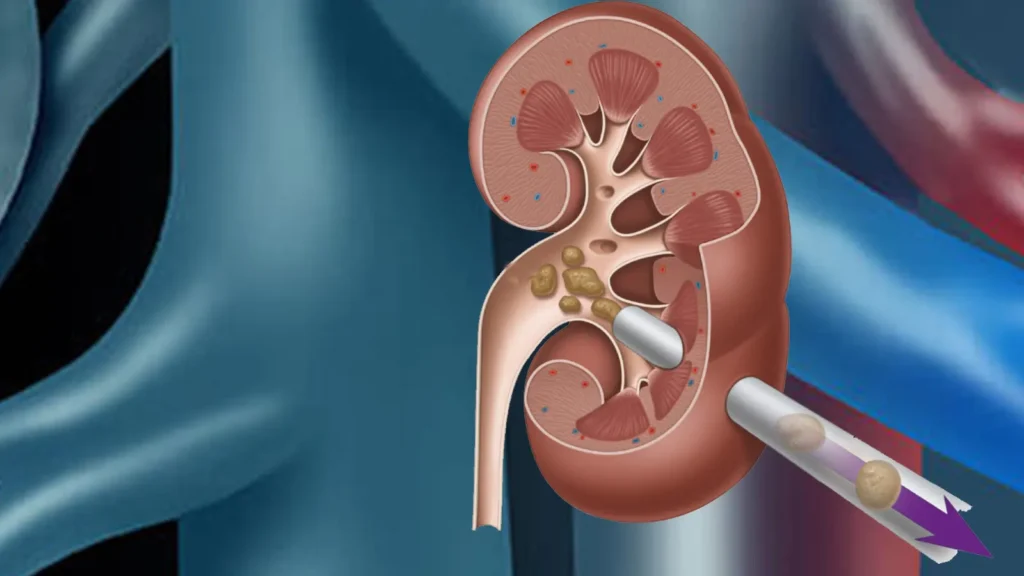
d. Open or Laparoscopic Surgery
- Rarely needed due to availability of minimally invasive options
- Reserved for complex or recurrent stones
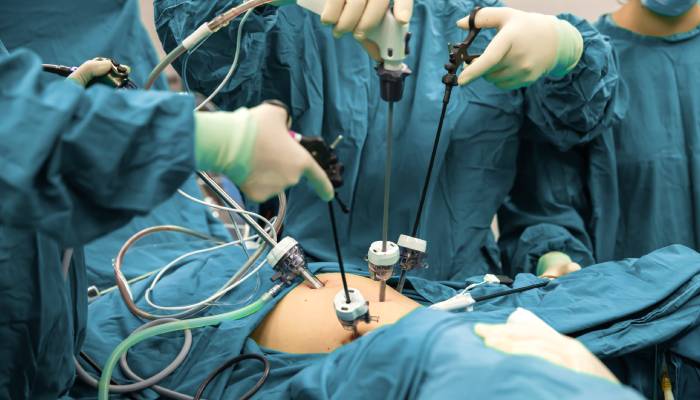
Prevention of Kidney Stones
Preventing recurrence is a major goal after a kidney stone episode. Here are practical and effective steps:
1. Hydrate Well
- Drink 2.5 to 3 liters of water daily
- Lemon water helps due to citrate content
- Monitor urine color — clear or light yellow is ideal
2. Modify Diet According to Stone Type
For Calcium Oxalate Stones:
- Limit high-oxalate foods (spinach, rhubarb, chocolate, nuts)
- Pair oxalate foods with calcium-rich ones (e.g., milk)
For Uric Acid Stones:
- Reduce purine intake (red meat, shellfish, organ meats)
- Limit alcohol, especially beer
General Diet Tips:
- Cut down on sodium
- Avoid sugary drinks
- Eat a balanced diet rich in fruits and vegetables
- Maintain a healthy weight
3. Medications
For recurrent stones, medications may be prescribed:
- Thiazide diuretics to reduce calcium in urine
- Allopurinol to lower uric acid levels
- Potassium citrate to prevent crystallization
Kidney Stone Myths vs. Facts
| Myth | Fact |
|---|---|
| Kidney stones only affect men | Women are also at risk, especially during pregnancy or menopause |
| All stones require surgery | Many small stones can pass naturally |
| Drinking milk causes stones | Not true — low calcium increases oxalate absorption |
| Once treated, stones won’t return | Without preventive measures, recurrence is common |
When to See a Doctor
Seek medical help immediately if you experience:
- Severe, persistent abdominal pain
- Vomiting or fever along with urinary pain
- Blood in the urine
- Inability to pass urine
- History of recurrent stones
Why Choose Dokrimare Multispeciality Hospital for Kidney Stone Treatment?
At Dokrimare Multispeciality Hospital, we offer a comprehensive and advanced kidney stone management program that includes:
- State-of-the-art diagnostic facilities
- Expert consultation by Dr. Atul Dokrimare
- Minimally invasive surgical options
- Customized dietary and preventive care counseling
- Post-treatment follow-ups to prevent recurrence
Your health is our priority, and we ensure the most comfortable and effective path to recovery.
Conclusion
Kidney stones can be painful, but with early diagnosis, proper treatment, and the right lifestyle changes, they are entirely manageable and preventable. Whether you’re dealing with a current episode or looking to prevent future stones, Dr. Atul Dokrimare and the expert team at Dokrimare Multispeciality Hospital are here to help.
📞 Book Your Consultation Today
- Phone: +919527282994 I 07184256063
- Website: www.dokrimarehospital.com
- Address: Dokrimare Multispeciality Hospital, Rajiv Gandhi Square, Bhandara.

